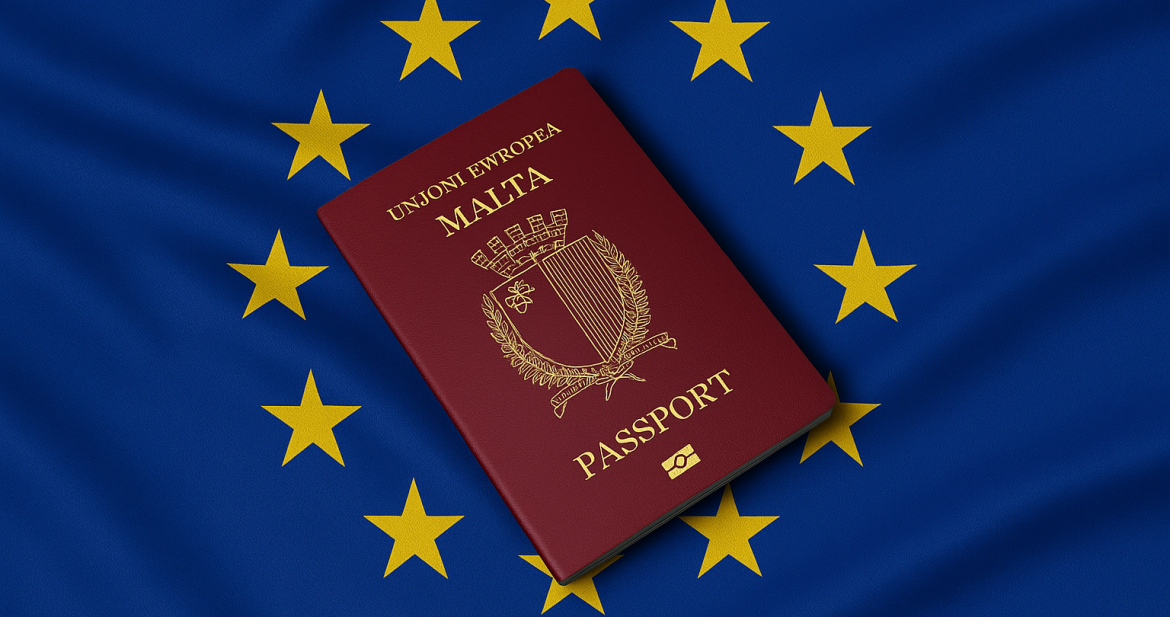In a landmark decision delivered on 29th April 2025, the European Court of Justice (ECJ) has ruled that Malta’s citizenship-by-investment (CBI) programme, commonly known as the “golden passport” scheme, is incompatible with European Union (EU) law.
The Court’s judgement represents a significant shift in the EU’s approach to safeguarding the integrity of European citizenship and reaffirms the Union’s stance that nationality — and, by extension, EU citizenship — must not be treated as a commercial product.
The ruling is expected to have profound consequences not only for Malta but also for any Member State operating or contemplating similar investment-based citizenship models.
Malta’s Programme
Malta introduced its CBI programme in 2014, offering foreign nationals the opportunity to acquire Maltese — and thus EU — citizenship by making substantial financial contributions to the country. The requirements included:
While the Maltese government hailed the initiative as a legitimate means to attract investment and bolster the economy, the programme faced severe criticism.
The European Commission formally launched infringement proceedings against Malta in 2020, arguing that the scheme undermined the concept of sincere cooperation among Member States and devalued the notion of EU citizenship by severing it from any “genuine link” to the granting Member State.
The ECJ’s Decision: National Sovereignty Versus EU Principles
The ECJ’s judgment marks a clear departure from the earlier non-binding opinion issued by Advocate General Anthony Collins in October 2024, which had favoured Malta’s sovereign discretion in naturalisation matters.
In its final ruling, the Court found that:
- The granting of citizenship in exchange for financial consideration alone, without requiring a real and effective connection to the Member State, constitutes a breach of the principle of sincere cooperation (Article 4(3) TEU).
- Such schemes undermine mutual trust between Member States, as EU citizenship rights are attached to nationality granted by individual countries.
- Citizenship is not a commodity to be bought and sold; it represents a profound legal status that entails reciprocal rights and obligations within the EU framework.
Thus, Malta’s golden passport scheme was found to contravene EU law, and Malta must bring its practices into compliance without delay.
(Sources: Curia.europa.eu, Reuters)
Implications for Malta
The ECJ ruling is binding and leaves Malta with no choice but to terminate or fundamentally restructure its citizenship-by-investment programme.
Failure to comply could result in substantial financial penalties and the initiation of further infringement actions by the Commission.
Beyond the legal obligations, the ruling presents an economic challenge for Malta, which has reaped more than €1 billion in revenues through the CBI programme since its inception. The government must now reassess its investment attraction strategies whilst aligning with the strictures of EU law.
Maltese authorities have issued a preliminary statement acknowledging the ruling and committing to a detailed examination of the Court’s reasoning to ensure full compliance.
Broader Consequences Across the European Union
This landmark decision sets a significant precedent for other EU Member States:
- Austria and Bulgaria, which have had their own versions of investment-linked nationality or residency schemes, will now face renewed scrutiny.
- Countries contemplating the launch of similar schemes are likely to reconsider, given the clear legal risk now associated with purely investment-based citizenship grants.
- The ruling underscores the EU’s firm commitment to preserving the integrity of its citizenship framework and avoiding the emergence of parallel, commercially-driven citizenship markets within its borders.
Moreover, the decision may strengthen efforts by the European Parliament and various civil society organisations, such as Transparency International, to press for a Union-wide prohibition on investment-based citizenship and tighter controls even over golden visa programmes.
In Summary
The ECJ’s 29th April 2025 judgment against Malta’s citizenship-by-investment scheme signals a pivotal moment in European legal and political history.
The ruling reaffirms that EU citizenship is a legal status grounded in genuine connections to Member States, not a transactional commodity for sale.
As the dust settles, Malta faces the dual challenge of economic adjustment and reputational management, whilst the wider investment migration industry must reckon with a dramatically altered European legal landscape.
The decision marks not merely the end of one programme, but the start of a new chapter in the EU’s approach to citizenship, migration, and the protection of common European values.





